Backpacking in Wyoming’s rugged wilderness is a backpacker’s paradise, and the Tetons are a must-see for any outdoor enthusiast. With towering peaks, crystal-clear lakes, and abundant wildlife, the Grand Teton National Park is a backpacking haven.
Contents
Backpacking in Wyoming’s Tetons offers a unique opportunity to explore untouched natural beauty.
The region boasts miles of trails that cater to novice and experienced backpackers alike. From challenging treks to easy walks, visitors can choose their adventure.
Backpacking in Wyoming
Explore Wyoming’s breathtaking landscapes by backpacking through its rugged terrain. Discover the majestic Grand Teton National Park, boasting iconic peaks and pristine lakes.
Venture into the vast wilderness of Yellowstone National Park, home to geysers and diverse wildlife. Hike through the Wind River Range for stunning alpine scenery and challenging trails.
Embrace the solitude of Bridger-Teton National Forest, offering serene backcountry experiences. Wyoming’s varied ecosystems provide a haven for outdoor enthusiasts seeking adventure and natural beauty.
Remember to follow Leave No Trace principles, respecting the pristine environment while immersing yourself in the untamed splendor of the Cowboy State.
Key Takeaways
- Wyoming’s Tetons offer unparalleled natural beauty for backpackers.
- Grand Teton National Park is a backpacking haven with a range of trails for all skill levels.
- The region’s untouched wilderness and abundant wildlife make it a must-see destination for outdoor enthusiasts.
- Backpacking in the Tetons offers a range of experiences, from challenging treks to leisurely walks.
- Plan your backpacking journey to Wyoming’s Tetons for a unique and unforgettable adventure.
Choosing the Right Trails: Wyoming Backpacking Routes
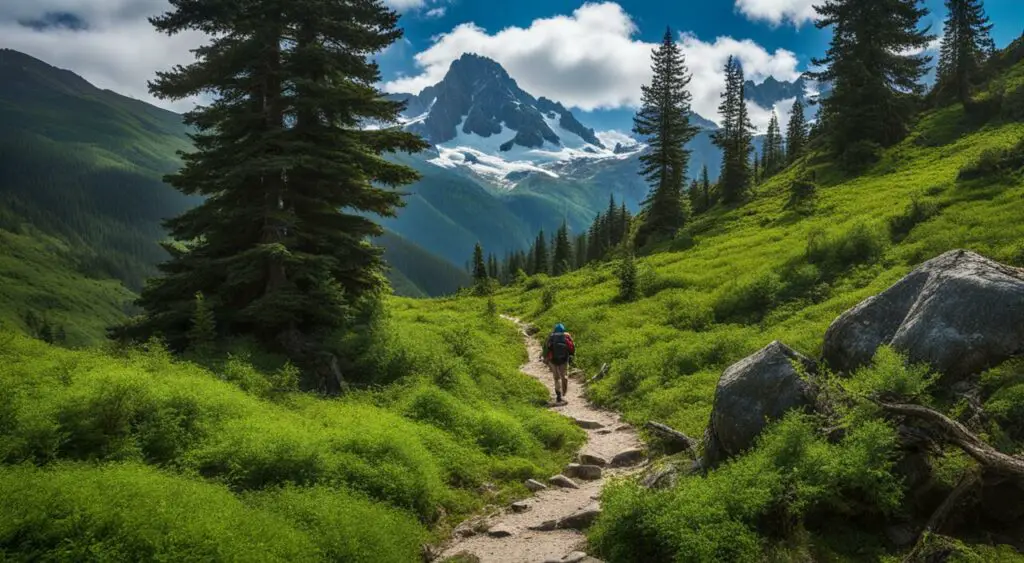
Wyoming offers a multitude of backpacking trails that cater to hikers of all skill levels.
From the iconic to the lesser-known routes, these trails take trekkers through varied landscapes that showcase the natural diversity of the state.
From the Wind River Range to the Snowy Range Mountains, backpacking enthusiasts are spoilt for choice.
One of the most popular trails in Wyoming is the Cascade Canyon Trail.
This trail is located in Grand Teton National Park and offers hikers stunning vistas of the rugged Teton landscape. The trail spans 18 miles and takes about two to three days to complete, depending on your pace.
Wyoming Backpacking Trails Table
| Trail Name | Location | Distance (miles) | Difficulty Level | Estimated Completion Time |
|---|---|---|---|---|
| Cascade Canyon Trail | Grand Teton National Park | 18 | Moderate | 2-3 days |
| Wind River High Route | Wind River Range | 112 | Difficult | 20-30 days |
| Medicine Bow Peak Trail | Snowy Range Mountains | 5.4 | Moderate | 1 day |
Another popular trail is the Wind River High Route. This 112-mile route takes experienced hikers through the heart of the Wind River Range.
The trail is difficult but offers breathtaking views of the mountains and glaciers. It takes around 20-30 days to complete, and hikers must be well-prepared and experienced.
The Medicine Bow Peak Trail located in the Snowy Range Mountains is perfect for those looking for a shorter hike.
This trail is just 5.4 miles long and takes around a day to complete. The hike is moderately difficult and takes hikers through stunning alpine meadows and glacial lakes.
When choosing a backpacking trail in Wyoming, it’s important to consider your skill level, the difficulty of the trail, and the estimated completion time.
It’s also essential to come prepared with proper gear, including a map and compass, first aid kit, and plenty of water and food.
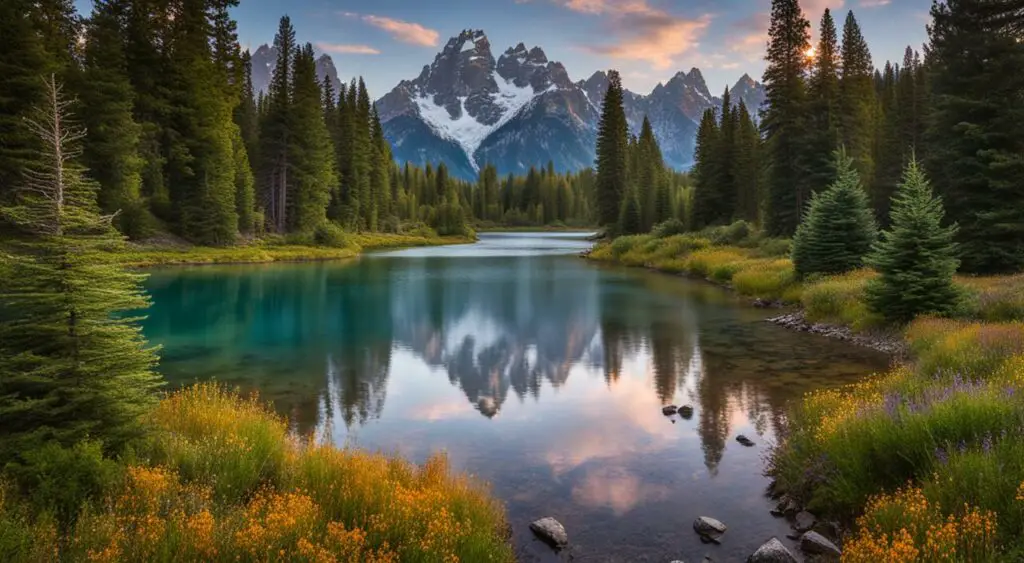
Exploring Grand Teton National Park: Top Hikes and Trails
Grand Teton National Park is a backpacker’s dream, with an abundance of stunning hikes and trails to explore. For those seeking an adventurous backpacking trip, the park offers a variety of options for all skill levels.
Below is a list of top hikes and trails to consider when planning your backpacking adventure in Grand Teton National Park.
1. Cascade Canyon Trail
The Cascade Canyon Trail is one of the most popular hikes in the park, and for good reason. This 9.6-mile out-and-back trail takes hikers through stunning alpine scenery, with prime opportunities for wildlife sightings along the way.
The trail starts at the Jenny Lake Trailhead, and hikers can choose to continue on to Lake Solitude and Paintbrush Divide for a longer, more challenging trek.
2. Lake Solitude via Paintbrush Canyon Trail
This 18.6-mile hike takes backpackers through both Paintbrush Canyon and Cascade Canyon, offering some of the best views in the park.
The trail can be strenuous, with steep elevation gains, but the reward is worth it – Lake Solitude is a picturesque alpine lake surrounded by towering peaks.
3. Death Canyon Trail
The Death Canyon Trail is a 9.8-mile out-and-back trail that offers stunning views of the Teton Range. Along the way, hikers will encounter waterfalls, mountain meadows, and alpine lakes.
The trail is moderate in difficulty, making it a great option for backpackers with some hiking experience.
4. Teton Crest Trail
The Teton Crest Trail is a 40-mile backpacking trip that traverses the entire Teton Range. The trail takes hikers through stunning high alpine terrain, offering panoramic views of the surrounding mountains and valleys.
Because of its length and difficulty, this trail is recommended for experienced backpackers only.
Whether you’re a seasoned backpacker or just starting out, Grand Teton National Park offers a range of hikes and trails for all adventurers.
From the popular Cascade Canyon Trail to the more challenging Teton Crest Trail, backpackers will find no shortage of stunning scenery and rewarding experiences in this iconic park.
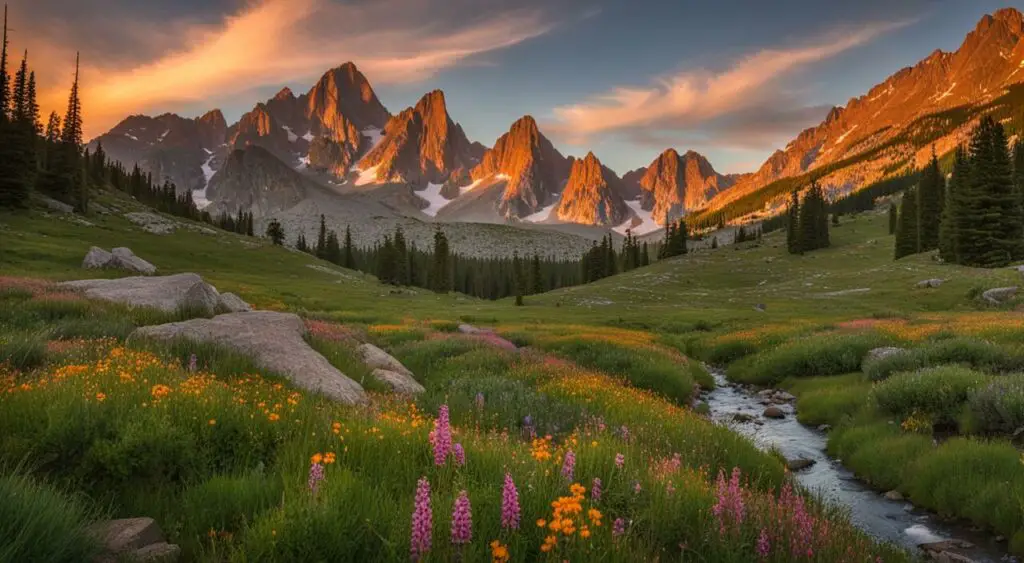
A Journey into the Wind River Range: Wyoming’s Backcountry Gem
The Wind River Range is a true backcountry gem in Wyoming that offers some of the most stunning scenery and challenging backpacking routes in the country.
This mountain range spans over 100 miles and boasts over 40 peaks exceeding 13,000 feet in elevation.
Backpacking routes in the Wind River Range can range from single-day trips to multi-day treks, offering visitors a chance to explore some of the most rugged and remote wilderness in the state.
One of the most popular multi-day backpacking routes in Wyoming is the Wind River High Route, a 100-mile route that explores some of the most scenic areas in the range.
Backpacking Routes in the Wind River Range
Some of the most popular backpacking routes in the Wind River Range include:
| Route | Description |
|---|---|
| Cirque of the Towers | A popular 28-mile loop that passes through some of the most scenic areas in the range, including the iconic Cirque of the Towers |
| Titcomb Basin | A 32-mile trek that leads backpackers through some of the most stunning alpine scenery in the range, including the beautiful Titcomb Basin. |
| Highline Trail | A 75-mile trail that traverses the entire Wind River Range, showcasing the diverse landscapes and wildlife of the area. |
Multi-Day Backpacking in Wyoming
Backpacking in the Wind River Range offers a truly unique and challenging experience for those looking to embark on multi-day trips.
Visitors should be prepared for steep climbs, rugged terrain, and unpredictable weather conditions.
It’s essential to plan your trip carefully, ensuring that you have enough food, water, and supplies to last for the entire duration of your trek.
Backpackers should also be aware of the Leave No Trace principles and strive to minimize their impact on the environment.
Backpacking Loop Trail in Wyoming
The Wind River Range offers several backpacking loop trails that allow hikers to explore the area’s stunning beauty without repeating any sections of the trail.
Some of the most popular backpacking loop trails in the Wind River Range include:
- The Cirque of the Towers Loop
- The Wind River High Route
- The Titcomb Basin and Indian Basin Loop
No matter which route you choose, backpacking in the Wind River Range is a rewarding and challenging adventure that offers stunning natural beauty and a chance to explore Wyoming’s untamed wilderness.
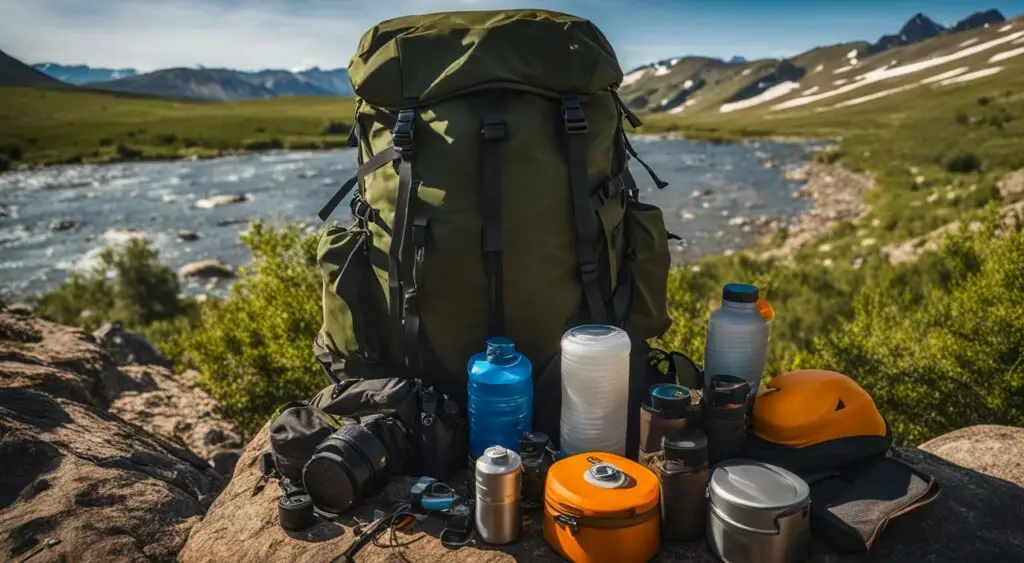
Backpacking Essentials: Must-Have Gear for Wyoming Adventures
When planning a backpacking adventure in Wyoming, it is essential to have the right gear to ensure a safe and comfortable journey. Here are some must-have items to pack:
| Item | Description |
|---|---|
| Tent | A waterproof and sturdy tent is essential for camping in the backcountry. |
| Sleeping Bag | Choose a sleeping bag with a temperature rating suitable for the season and terrain. |
| Sleeping Pad | A sleeping pad provides insulation and cushioning for a comfortable night’s sleep. |
| Backpack | A durable and properly fitting backpack is necessary to carry all of your gear. |
| Water Filtration System | Ensure access to safe drinking water by packing a reliable water filtration system. |
| Map and Compass | These tools are essential for navigation and should be carried at all times. |
| Headlamp | Always have a reliable and bright headlamp for night-time hiking and camping. |
| First Aid Kit | Be prepared for any injuries or illnesses with a comprehensive first aid kit. |
| Stove and Fuel | A lightweight backpacking stove and fuel is necessary for cooking meals in the wilderness. |
Aside from these essentials, it is important to pack appropriate clothing and footwear for the season and terrain.
Layering is recommended to accommodate for changing temperatures and weather conditions. Don’t forget to pack enough food and snacks, as well as garbage bags for waste disposal.
When camping in the backcountry, it is important to abide by Leave No Trace principles and minimize your impact on the environment.
Make sure to properly dispose of waste and respect wildlife and natural habitats.
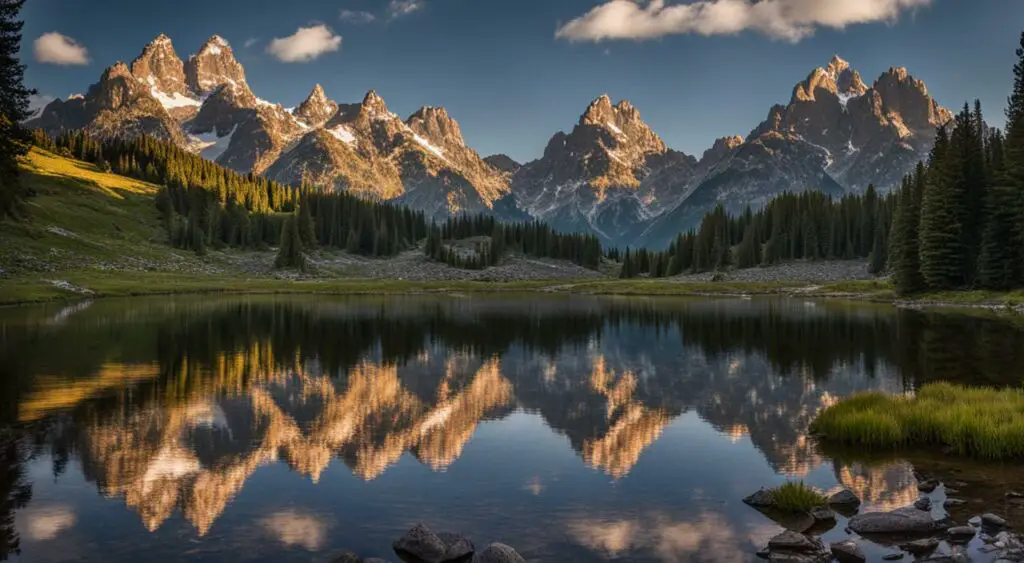
Tips for a Safe and Memorable Wyoming Backpacking Adventure
Wyoming’s wilderness is stunning, but it can be unpredictable and dangerous if not approached with care.
Here are some tips to make the most of your outdoor adventure while keeping safe and respecting the environment.
Backpacking in Wyoming Tips
Before setting out on a backpacking trip, it’s important to do your research and plan accordingly. Make sure to check the weather forecast and trail conditions ahead of time, and always let someone know your itinerary and expected return date.
Here are some additional tips to keep in mind:
- Bring appropriate gear and clothing
- Pack enough food and water
- Stay on designated trails to avoid damaging the environment
- If camping, choose a site at least 200 feet away from streams or lakes to avoid contamination
- Respect wildlife by observing from a safe distance and not disturbing their natural habitats
Outdoor Activities in Wyoming
Wyoming’s rugged terrain and diverse landscapes offer endless possibilities for outdoor adventures beyond backpacking. Here are some other popular activities to consider:
- Hiking
- Camping
- Fishing
- Hunting
- Birdwatching
Exploring Nature in Wyoming
Wyoming is home to some of the most breathtaking natural landscapes in the country, from towering mountains to vast plains. Here are some must-see sights for nature lovers:
- Grand Teton National Park
- Yellowstone National Park
- Devil’s Tower National Monument
- Bighorn Canyon National Recreation Area
- Medicine Bow National Forest
Wyoming Wilderness
Wyoming’s wilderness presents challenges and rewards for those who venture into it. It’s important to treat it with respect and follow Leave No Trace principles for minimal impact on the environment.
Here are some essential tips for wilderness exploration:
- Carry out all trash and waste
- Use designated fire rings or stoves for cooking
- Keep a safe distance from wildlife and avoid feeding them
- Leave natural and historic objects undisturbed
- Be prepared for emergencies with a first aid kit and knowledge of basic survival skills
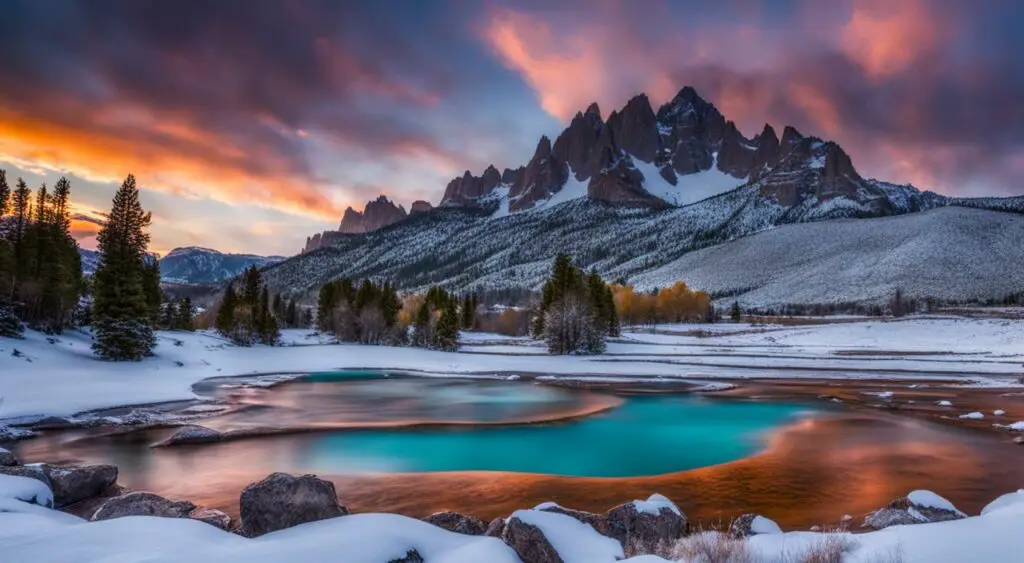
Discovering Wyoming’s Other National Parks: Yellowstone and More
While the Grand Teton National Park is a highlight for backpacking in Wyoming, it is certainly not the only national park worth exploring.
Wyoming is home to numerous other parks that offer endless outdoor adventure opportunities, including the world-famous Yellowstone National Park.
Yellowstone National Park is located in the northwest corner of Wyoming and spans over 2 million acres.
It is known for its geothermal features, including the famous Old Faithful geyser, as well as its diverse wildlife such as bison, elk, and grizzly bears.
Backpackers can explore the park’s vast wilderness on over 1,000 miles of hiking trails, ranging from short day hikes to multi-day backpacking trips.
Another national park worth visiting in Wyoming is the Bighorn Canyon National Recreation Area, located in the northern part of the state.
This park offers breathtaking canyon views and opportunities for boating, fishing, and hiking. Backpackers can also explore the Pryor Mountain Wild Horse Range, which is home to a herd of free-roaming wild horses.
In addition to national parks, Wyoming also has several state parks that offer outdoor adventure opportunities, such as hiking, fishing, and camping.
Some notable state parks include Curt Gowdy State Park, Sinks Canyon State Park, and Guernsey State Park.
Key Takeaways
- Wyoming is home to numerous national and state parks that offer endless outdoor adventure opportunities.
- Yellowstone National Park, located in the northwest corner of Wyoming, is world-famous for its geothermal features and diverse wildlife.
- The Bighorn Canyon National Recreation Area, located in northern Wyoming, offers breathtaking canyon views and opportunities for boating, fishing, and hiking.
- Wyoming’s state parks, such as Curt Gowdy State Park, Sinks Canyon State Park, and Guernsey State Park, are also worth exploring for outdoor enthusiasts.
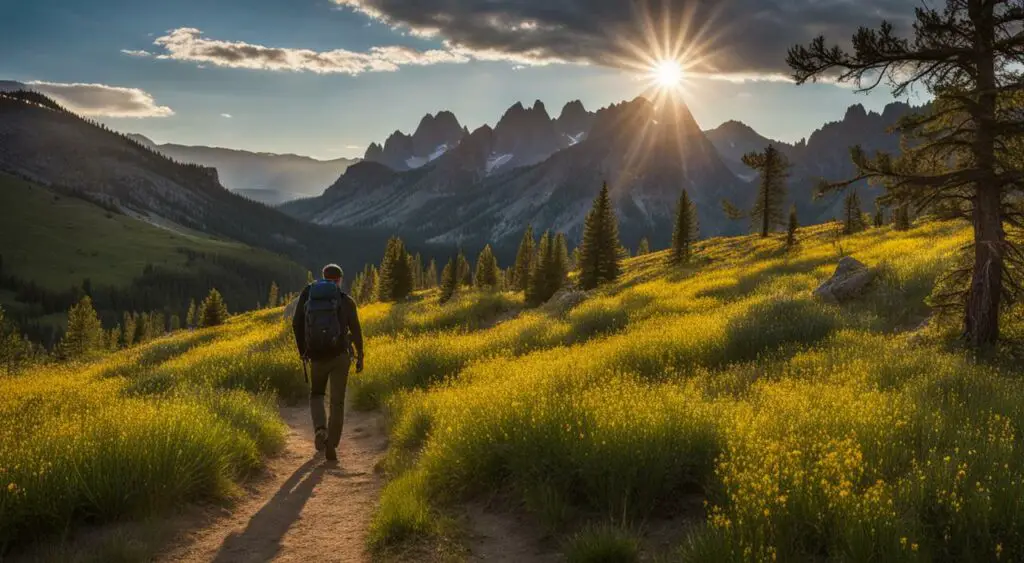
Weekend Getaways: Hiking Trails in Southern Wyoming
If you’re looking for a quick escape to the outdoors, southern Wyoming offers some of the best backpacking in the state.
From stunning vistas to serene lake views, southern Wyoming has it all. Here are some of the best hiking trails and weekend backpacking trips in southern Wyoming:
Bridger Wilderness
Located in the Wind River Range, the Bridger Wilderness offers a vast expanse of unspoiled natural beauty and is perfect for a weekend backpacking trip.
The area features several trails of varying difficulty levels, so there’s something for everyone.
One of the most popular routes is the Cirque of the Towers Trail, which offers breathtaking views of the Winds’ most iconic peaks.
Albany County
For those looking for a day hike or a weekend backpacking trip, Albany County has plenty of options. The Snowy Range Mountains offer some of the best backpacking and hiking trails in southern Wyoming.
The Medicine Bow National Forest boasts several trails, including the Medicine Bow Peak Trail and the Brooklyn Lake Trail.
These trails offer spectacular views of the surrounding mountains and are perfect for nature lovers.
Thunder Basin National Grassland
The Thunder Basin National Grassland is a hidden gem in southern Wyoming.
With over 500,000 acres of open prairie, the grassland offers backpackers and hikers a chance to get away from the crowds and enjoy unspoiled natural beauty.
There are several trails in the area, including the Thunder Basin Prairie Dog Town Trail and the Indian Creek Trail.
These trails offer a glimpse into the area’s unique ecosystem and offer stunning views of the surrounding landscape.
With its stunning natural beauty and endless outdoor recreation opportunities, southern Wyoming is a backpacking and hiking paradise.
Whether you’re looking for a quick day hike or a weekend backpacking trip, southern Wyoming has something for everyone.
So grab your gear, hit the trails, and discover the wild beauty of southern Wyoming.
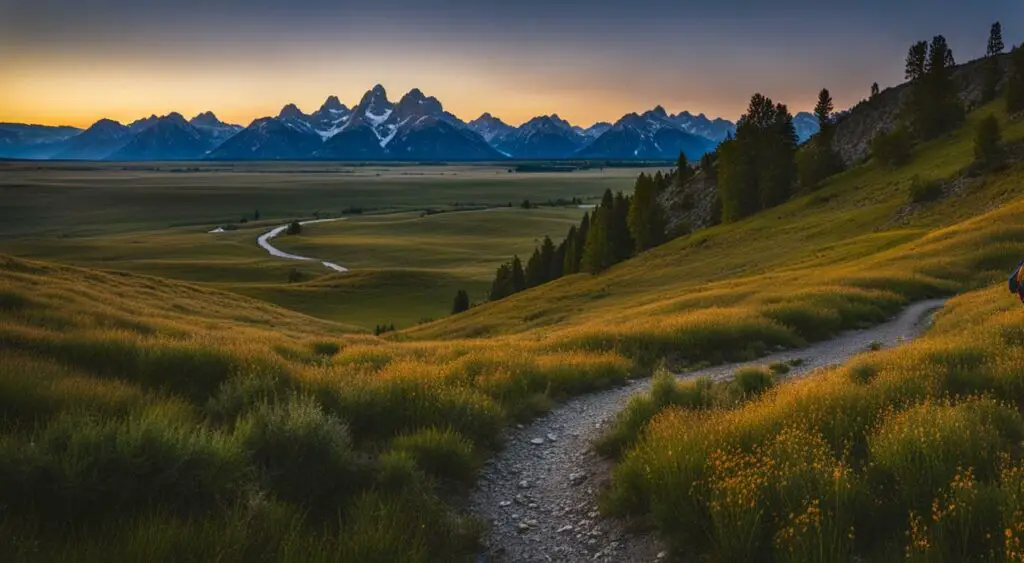
Exploring Wyoming’s Natural Wonders: Hikes Near Towns and Cities
Wyoming offers some of the best hiking trails in the country, from the rugged wilderness of the Tetons to the breathtaking beauty of Yellowstone National Park.
But for those looking for a more urban experience, there are also plenty of hiking trails located near towns and cities throughout the state.
Hiking in Buffalo Wyoming
The town of Buffalo is located in north-central Wyoming, and is home to numerous hiking trails that offer stunning views of the surrounding mountains and prairies.
One popular hike is the Soldier Ridge Trail, a 6.5-mile loop that winds through the Bighorn Mountains and offers panoramic views of the surrounding landscape.
Hiking in Cheyenne Wyoming
Cheyenne, Wyoming’s capital city, is located in the southeastern part of the state.
Hikers can explore the nearby Curt Gowdy State Park, which features miles of trails for hiking, mountain biking, and horseback riding.
The park’s granite formations and crystal-clear reservoirs make for a scenic and unique hiking experience.
Hiking in Cody Wyoming
The town of Cody, located just east of Yellowstone National Park, is a gateway to some of Wyoming’s most iconic hikes. Visitors can explore nearby trails such as the Buffalo Bill Dam Trail.
Which offers views of the Shoshone River and the Absaroka Mountains, or venture into nearby mountain ranges like the Beartooth Mountains and Shoshone National Forest.
Hikes in Wyoming Near Colorado
For those near the Wyoming-Colorado border, there are numerous hiking trails that offer scenic vistas and unique experiences.
The Pole Mountain Trail near Laramie winds through a pine forest and offers views of the surrounding mountains.
While the Medicine Bow Peak trail offers stunning views of the Snowy Range Mountains and can be accessed from both Wyoming and Colorado.
Whether you’re an outdoor enthusiast or just looking for a change of scenery, Wyoming’s hiking trails near towns and cities offer a diverse range of experiences for visitors.
From mountain vistas to crystal-clear reservoirs, there’s something for everyone to enjoy.
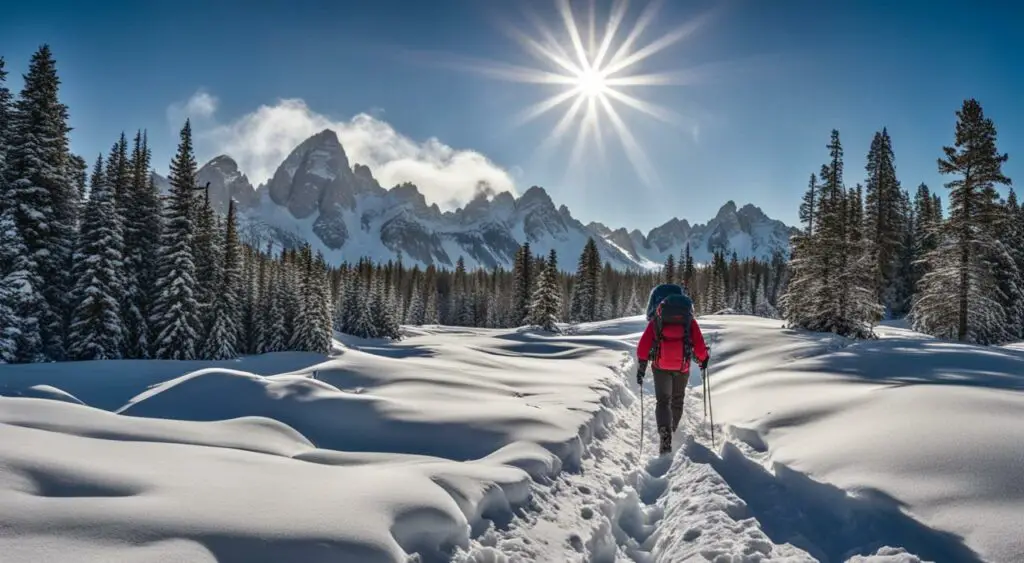
Embracing the Seasons: Backpacking Wyoming in Winter
Winter in Wyoming can be a magical experience for backpackers who are prepared for the cold and snow. Here are some tips on how to survive winter in Wyoming and still enjoy a memorable backpacking trip:
- Dress in layers: Wear a base layer, mid-layer, and outer layer to trap heat, and add and remove layers as needed. Don’t forget to wear a warm hat, gloves, and insulated boots.
- Stay hydrated: Even if you don’t feel thirsty, be sure to drink enough water to prevent dehydration.
- Bring the right gear: Pack lightweight and moisture-resistant gear, including a tent, sleeping bag, and cooking stove. Consider renting gear if you’re not ready to invest in expensive equipment.
- Be mindful of sunburn: Snow can reflect up to 80% of the sun’s UV rays, so wear sunscreen and protect your eyes with sunglasses or goggles.
- Watch for wildlife: While some animals hibernate, others are more active in winter. Be prepared to encounter bison, elk, and wolves.
- Know the forecast: Check weather forecasts and trail conditions before you head out, and be prepared to change your itinerary if necessary.
November is a great time to visit Wyoming for backpacking, with average temperatures ranging from the mid-20s to low-40s Fahrenheit.
It’s important to note that the cost of living in Wyoming varies depending on location and season.
According to Numbeo, the average monthly cost of living in Wyoming, including rent, groceries, and transportation, is $1,987.74.
| Season | Temperature Range (Fahrenheit) |
|---|---|
| Winter (November – February) | 8 – 38 |
| Spring (March – May) | 28 – 68 |
| Summer (June – August) | 43 – 82 |
| Fall (September – October) | 25 – 63 |
“During winter, Wyoming’s trails are less crowded, and the serene beauty of snow-covered landscapes is truly breathtaking.” – Jane, experienced backpacker
While winter backpacking may not be for everyone, it offers a unique and rewarding experience for those who are up for the challenge.
By following these tips and packing the right gear, you can enjoy the beauty of Wyoming’s wilderness any time of year.
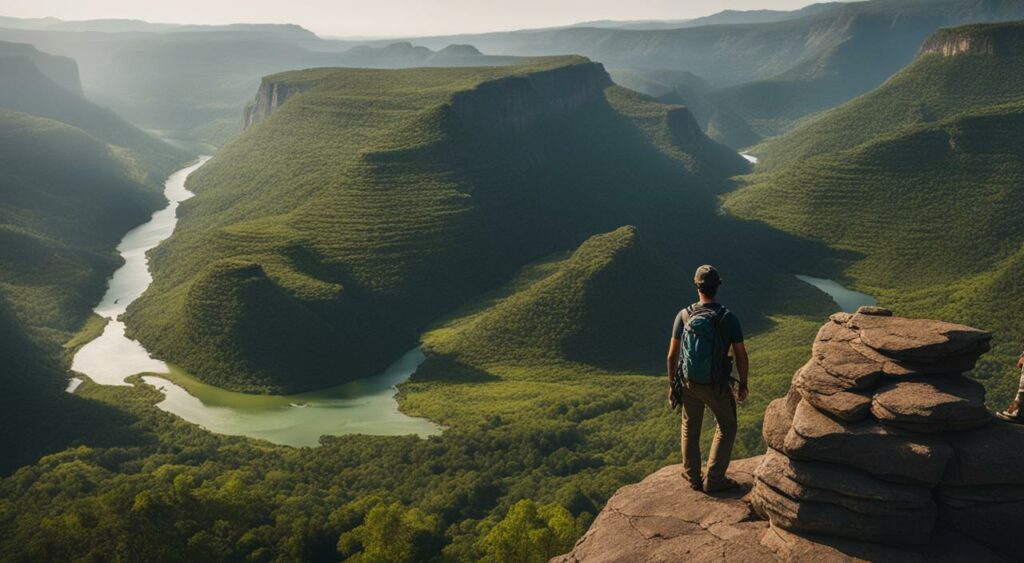
Conclusion
Backpacking in Wyoming is a journey into the heart of wild and untamed beauty.
From the iconic Grand Teton National Park to the lesser-known backcountry trails in Wind River Range and Snowy Range Mountains, there are a plethora of routes that showcase the natural wonders of this state.
Respect the Wilderness
While backpacking in Wyoming offers unforgettable adventure opportunities, it’s important to remember to respect the wilderness.
This means being mindful of wildlife encounters, properly disposing of waste, and taking steps to minimize your impact on the environment.
Start Planning Your Journey
If you’re looking for a new outdoor adventure, consider backpacking in Wyoming.
With diverse landscapes, moderate to challenging trails, and numerous natural wonders to explore, it’s a destination that offers something for everyone.
So start planning your journey today, and discover the beauty of the Tetons, Wind River Range, and more!

FAQ
What are the best backpacking trails in Wyoming?
Wyoming offers a variety of stunning backpacking trails, including the Wind River Range, Snowy Range Mountains, and Cascade Canyon Trail, each providing unique landscapes and experiences.
What are the top hikes and trails in Grand Teton National Park?
Grand Teton National Park is known for its incredible hikes and trails. Some of the top options include Taggart Lake Trail, Hidden Falls, and Jenny Lake Loop, which offer beautiful scenery and diverse landscapes.
Where can I find backpacking routes in the Wind River Range?
The Wind River Range is a backcountry gem with numerous backpacking routes. Some popular options include the Cirque of the Towers, Gannett Peak, and Titcomb Basin, offering breathtaking views and challenging adventures.
What essential gear do I need for backpacking in Wyoming?
Some essential gear for backpacking in Wyoming includes a sturdy backpack, tent, sleeping bag, proper clothing for the weather conditions, a portable stove, water filter, and navigation tools such as a compass and map.
How can I ensure a safe and memorable backpacking adventure in Wyoming?
To have a safe and memorable backpacking adventure in Wyoming, it is important to be prepared, research the trail and weather conditions, carry necessary safety equipment, be mindful of wildlife, and follow Leave No Trace principles.
What other national parks are worth exploring in Wyoming?
Wyoming is home to other stunning national parks, including Yellowstone National Park and Grand Teton National Park. Both parks offer unique outdoor adventure opportunities and breathtaking natural wonders.
Where can I find hiking trails in southern Wyoming for weekend getaways?
Southern Wyoming offers several hiking trails for weekend getaways. Popular options include hikes near Afton, Alta, and Alpine, providing scenic landscapes and the opportunity to explore nature within a short distance from major cities.
Are there hiking options near towns and cities in Wyoming?
Yes, Wyoming has hiking opportunities near towns and cities. Hiking spots near Buffalo, Cheyenne, Cody, and along the Wyoming-Colorado border offer accessible trails with beautiful natural surroundings.
Can I go backpacking in Wyoming during winter?
Yes, you can go backpacking in Wyoming during winter. However, it requires careful planning, appropriate gear for cold weather, knowledge of winter survival skills, and understanding the risks associated with winter conditions.

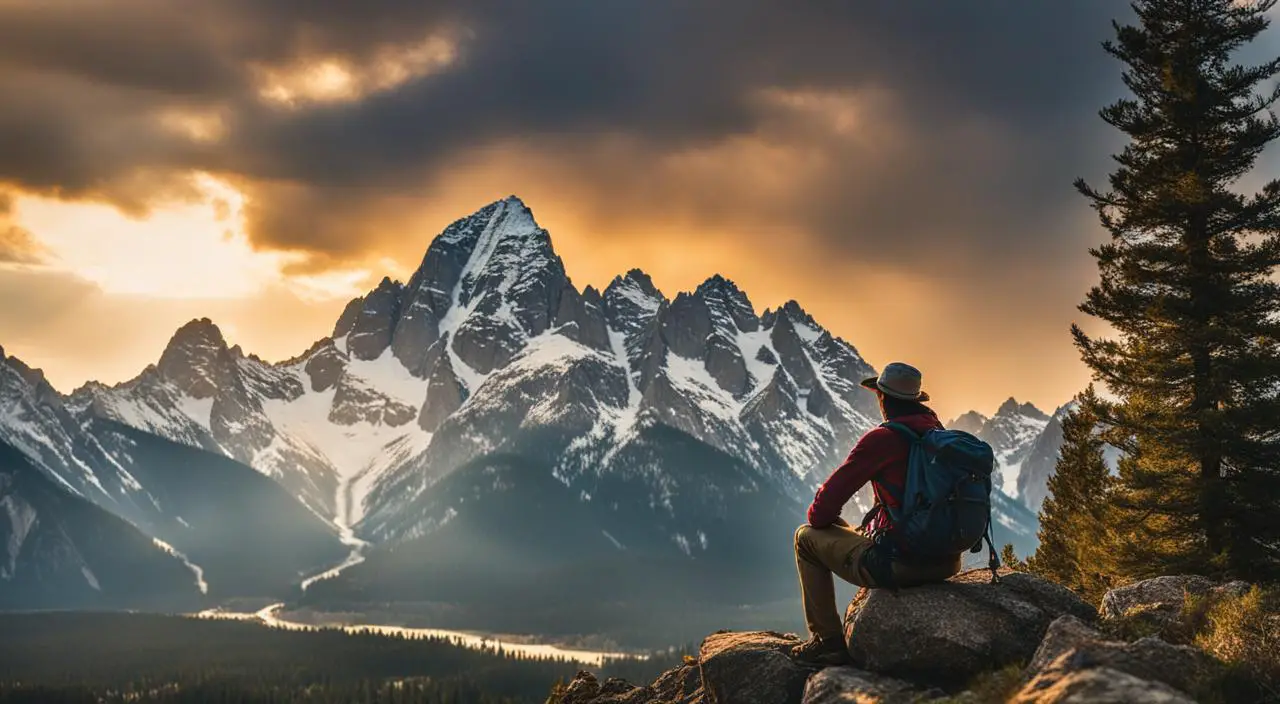

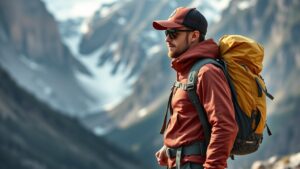
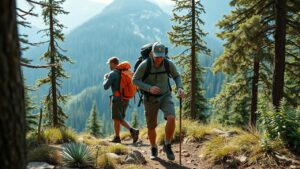
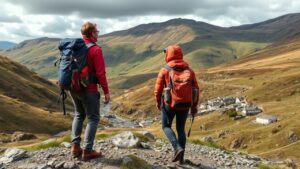
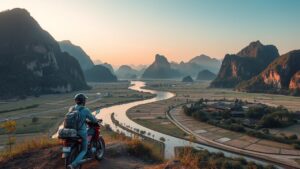
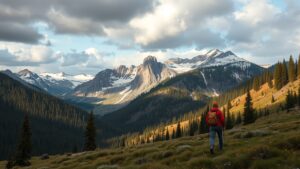

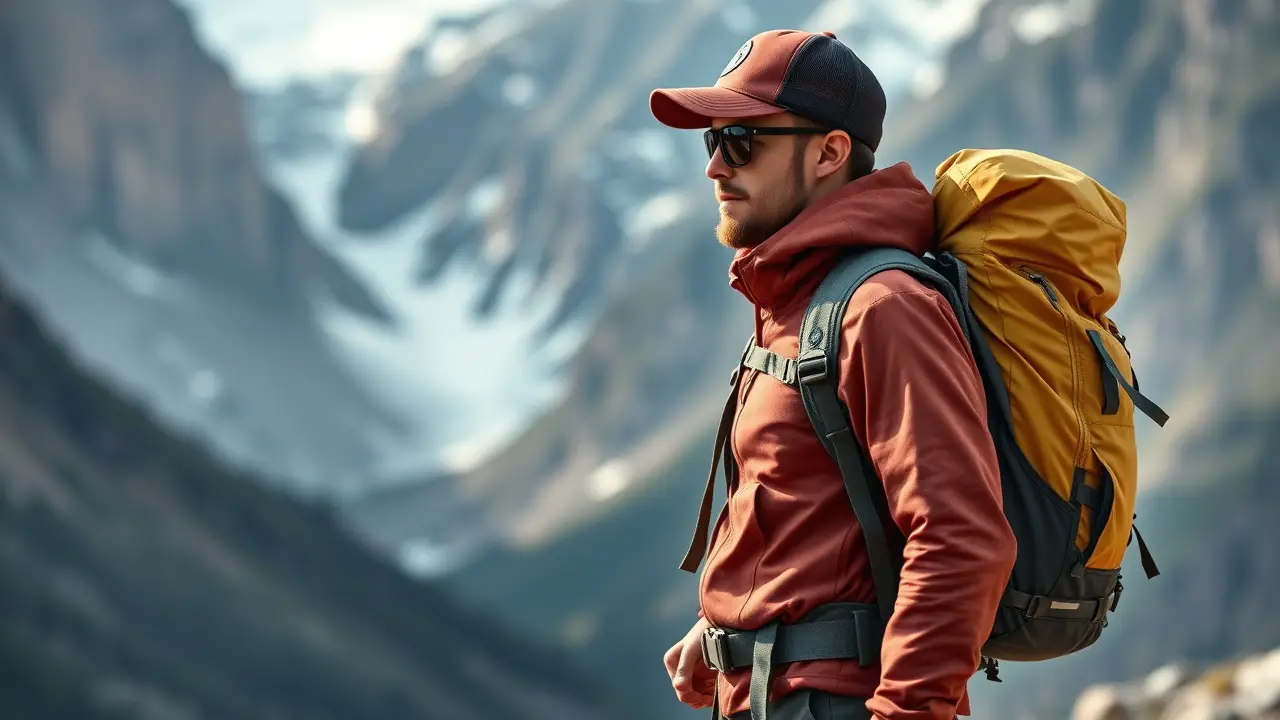
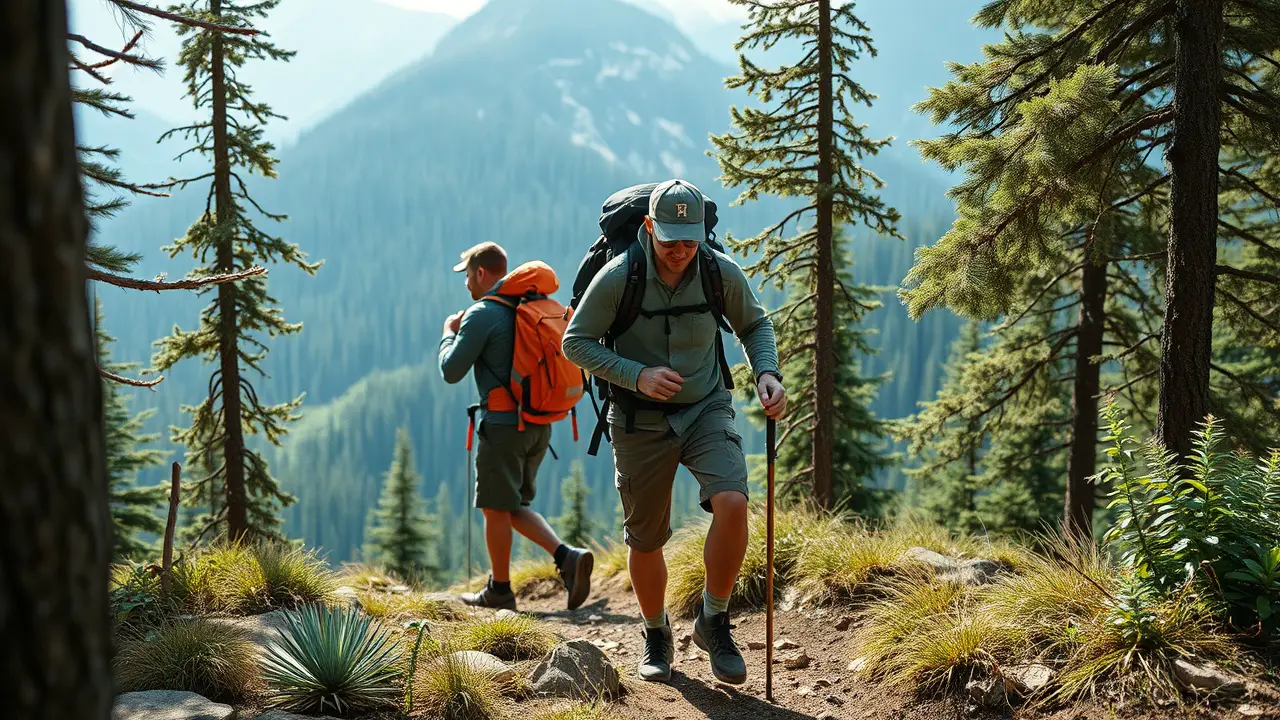
Leave a Reply